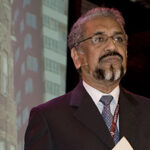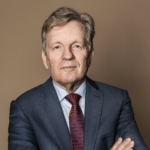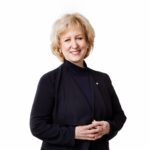The BRICS (Brazil, Russia, India, China and South Africa) will play a key role in the management of this economic crisis and will surely have a new and significant role within the global governance system emerging from the latter. This is the main reason Club de Madrid Members will be discussing and analyzing both the political effects of the crisis in the BRICS and the special role this group of countries will play in international politics and in particular, in the global governance system that will emerge from the current economic crisis. The Roundtable “The Political Dimensions of the World Economic Crisis: A Perspective from the BRICS”, hosted by the Organisation for Economic Co-operation and Development, will be held on 26 May 2010 at the OECD Headquarters in Paris and will bring together the experience of four Members of the Club de Madrid: Esko Aho, Former Prime Minister of Finland; Kim Campbell, Former Prime Minister of Canada; Lionel Jospin, Former Prime Minister of France; and Cassam Uteem, Former President of Mauritius. See list of participants.
The world economic crisis is accelerating the transformation of a new global order and power structure in which a more prominent role will be played by the emerging and developing countries. The BRICS (Brazil, Russia, India, China and South Africa) will be key players in an international decision-making process which entails not only a response to the economic crisis in the short term, but also the need to address a series of concurrent issues critical for global stability such as democratization and peace-building, nuclear proliferation, human rights, climate change and poverty, among others.
The BRICS account for 40% of the world’s population, 25.9% of its total geographic area, and 40% of global GDP and are likely determinant in terms of growth and stability in the world economy for decades to come. Following the first formal summit of the BRICs (officially including Brazil, Russia, India and China), held in Yekatarinburg (Russia) on June 16, 2009, this group of countries called for an increased role for emerging economies and developing countries in the global financial institutions and more broadly, for a reform of the global governance system.
Club de Madrid, through its project on “The Political Dimensions of the World Economic Crisis” organized a series of regional roundtables that brought its Members – 75 former Heads of State and of Government – and Advisors together with top international experts on this topic, to analyze the political impact of the crisis and to formulate practical recommendations for those institutions and policy-makers responsible for responding to the challenges democratic leadership is facing in the context of the current crisis. Four of these regional roundtables – on the European (Barcelona, 26 March 2009), Latin American (Santiago de Chile, 13 July, 2009), the Arab World (Madrid, 28 October, 2009) and African (Accra, 3 November, 2009) perspectives – have been successfully held.
###
ABOUT CLUB DE MADRID:
Club de Madrid promotes “Leadership for Democracy that Delivers.” It is an independent organization dedicated to strengthening democratic values and leadership around the world to meet political challenges at the local, national, regional and global level. Drawing on the unique experience and resources of its Members – more than 70 democratic former heads of state and government from 50 countries– and in partnership with organizations, governments and individuals that share its goals, the Club de Madrid addresses issues of global concern and provides peer to peer counsel, strategic support and technical advice to leaders and institutions working to further democratic development. The Club de Madrid constitutes the world’s largest forum of former Presidents and Prime Ministers and offers today’s leaders an unequalled body of knowledge and political leadership.
ABOUT THE OECD:
The Organisation for Economic Co-operation and Development (OECD) brings together the governments of countries committed to democracy and the market economy from around the world to support sustainable economic growth, boost employment, raise living standards, maintain financial stability, assist other countries’ economic development and contribute to growth in world trade. The Organisation provides a setting where governments compare policy experiences, seek answers to common problems, identify good practice and coordinate domestic and international policies.
PRESS CONTACT:
Silvia Pescador
Communications Coordinator, Club de Madrid
Direct: +34 911 548 237
Email: spescador@clubmadrid.org


